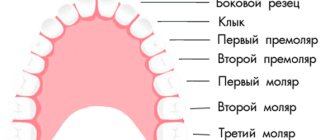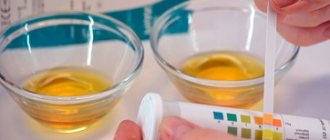Back to list Previous article Next article
11.03.2020
Tags:
belching
Vote
Sometimes even the healthiest people experience belching. Usually the cause of its appearance is accidentally swallowed air with food or drunk carbonated water. But in the case when for several days in a row you are tormented by belching with a characteristic rotten odor, you should under no circumstances brush aside this symptom.
Causes of rotten burps
In most cases, the prerequisite for the occurrence of erection, which has an unpleasant odor, is inflammatory and non-inflammatory diseases of the gastrointestinal tract and hepatobiliary system. Rotten belching occurs with congenital intolerance to carbohydrates - lactose and fructose due to enzyme deficiency. The cause of regurgitation of gases with the smell of hydrogen sulfide can be intestinal helminthiasis and giardiasis. Sometimes rotten erection is observed with functional dyspepsia and is associated with disruption of the processes of movement of chyme through the digestive tract.
Errors in nutrition
Physiological causes of rotten belching include excessive consumption of foods containing sulfur: meat and eggs, dairy and plant products (legumes, cabbage). It is this microelement that causes the foul odor of belched gastric gases. The likelihood of erection increases with the simultaneous intake of carbonated drinks, which cause excessive formation of carbon dioxide in the stomach and stretching of its walls, and the consumption of indigestible proteins that linger in the stomach.
Stomach diseases
The appearance of putrefactive erection is due to two main reasons: a decrease in the secretion of hydrochloric acid and stagnation of contents in the stomach. In a hypoacid state, the processes of activation of digestive enzymes are disrupted, fermentation reactions develop, which are accompanied by the release of hydrogen sulfide gas with an unpleasant rotten odor. When food masses stagnate in the stomach due to atony of smooth muscles or spasm of the pylorus, rotting of food also occurs, which causes foul-smelling belching. Regurgitation of rotten things is provoked by:
- Chronic atrophic gastritis
. Progressive atrophy of glandular epithelial cells and mucous membrane causes a decrease in the production of hydrochloric acid with impaired digestion of protein products. Rotten erection is associated with excessive stretching of the walls of the organ, fermentation and stagnation of food masses. With low acidity, secondary bacterial flora joins, which aggravates the patient’s condition. - Achlorhydria
. As a result of the absence of free hydrochloric acid, digestive enzymes are not activated, so chyme lingers in the stomach for a long time, where fermentation processes occur. The situation is aggravated by the addition of disturbances in the motor function of the organ and its stretching, which is accompanied by belching with a taste of rotten eggs. The disease is characterized by nausea, heaviness in the abdomen, and flatulence. - Atony of the stomach
. Impaired contractility of the gastric muscles leads to a decrease in both motor and secretory activity of the organ. This provokes prolonged stagnation of partially digested food, which causes distension of the stomach and regurgitation of gases. Rotten belching is often combined with discomfort and a feeling of heaviness in the abdominal cavity, worsening after eating. - Gastroptosis
. Eructation during gastric prolapse often occurs in the later stages of the disease and is associated with significant hypotension of the organ and compression of the duodenum, which potentiates stagnation of the contents. The clinical picture includes chronic constipation, nausea, and a feeling of early satiety. If gastroptosis is combined with damage to the underlying parts of the gastrointestinal tract, intestinal symptoms may occur. - Pyloric stenosis
. The combination of rotten erection with heaviness in the abdomen, loss of appetite, and weight loss is typical even for the compensated stage of the disease. As pyloric stenosis progresses, daily vomiting is observed; in severe cases, it occurs after each meal, while the vomit contains a large amount of incompletely digested foods. In the decompensated stage, severe exhaustion is noted. - Adenocarcinoma of the stomach
. Rotten belching with an unpleasant odor is typical of a large tumor, which is localized in the pyloric part of the organ. The neoplasm prevents the evacuation of chyme into the cavity of the duodenum, causing overstretching of the gastric wall and decreased motility. The symptom is combined with other dyspeptic disorders: intense epigastric pain, stool disorders, lack of appetite.
Pathology of the pancreaticoduodenal zone
Diseases of the duodenum and pancreas often manifest as putrid belching. It can occur as a result of disturbances in duodenal motility, which provokes stagnation of contents and activation of fermentation processes. Rotten erection in pathological conditions of the pancreas mainly develops as a result of enzymatic deficiency, which leads to impaired digestion and absorption of food ingredients, stagnation of chyme in the intestines. The symptom is characteristic of diseases such as:
- Duodenal stenosis
. Narrowing of the lumen of the duodenum of organic or functional origin inevitably leads to a slowdown in the passage of digestive masses through the intestine with stretching of the overlying sections. This causes contraction of the gastric muscles and potentiates putrefactive erection. Often rotten belching is combined with regurgitation of gastric contents and profuse vomiting, after which the patient’s condition improves. - Duodenostasis
. When chyme stagnates in the duodenum, pressure in the upper gastrointestinal tract increases, and the muscles of the stomach and esophagus reflexively contract, causing belching. The rotten smell is associated with the processes of rotting proteins and fermentation, caused by a decrease in the synthesis of enzymes. Eructation is combined with nausea, bloating and rumbling in the stomach. Vomiting often begins after eating and brings relief to patients. - Pancreatitis
. Regurgitation of putrefactive gases is more typical of chronic pancreatitis, in which the exocrine function of the pancreas always worsens. If there is insufficiency of digestive enzymes, the processes of breakdown and absorption of proteins, fats, and carbohydrates are disrupted. Undigested food lingers in the intestines for a long time, causing it to stretch, reflex belching, and regurgitation of chyme.
Intestinal diseases
Rotten belching in intestinal pathology is associated with a reflex reaction of the smooth muscle of the gastric wall to stagnation of fecal matter. The resulting unpleasant odor is caused by the processes of rotting and decomposition caused by the activation of opportunistic microorganisms living in the large intestine. Rotten erection can be observed with enteropathies of various origins, which are accompanied by disturbances in the digestive processes, increased pressure inside the intestines and stomach due to increased gas formation.
- Chronic enterocolitis
. Belching during inflammatory processes in the intestines is caused by both impaired digestion and changes in the rate of passage of chyme. Regurgitation of foul-smelling gas is often combined with polymorphic clinical symptoms: abdominal pain, discomfort, stool disorders (diarrhea or constipation), nausea and vomiting. In severe situations, stool retention occurs with the release of blood and mucus from the anus. - Celiac disease.
Atrophy of the small intestinal mucosa and concomitant malabsorption of nutrients lead to polymorphic dyspeptic disorders. With celiac disease, rotten belching develops as a result of increased gas formation in the intestines, a violation of the coordinated contractions of the pyloric and cardiac sphincters. Patients are also worried about diarrhea, diffuse abdominal pain, and often experience nausea and vomiting. - Dysbacteriosis
. The predominance of opportunistic microflora in the small and large intestines causes rotting and fermentation of chyme, which culminates in the formation of foul-smelling gases. Rotten erection occurs in response to overstretching of the walls of the digestive tract. Patients may complain of disturbances in stool frequency and stool consistency, abdominal pain, and nausea. With a long course of dysbiosis, a decrease in appetite and weight loss are possible. - Intestinal polyps
. Putrid regurgitation is observed with large benign epithelial neoplasms that cause mechanical obstruction of the intestinal lumen. The involuntary release of putrefactive gases is associated with a reflex contraction of the smooth muscles of the stomach during stretching and slow emptying of the intestinal tract. Rotten belching is often combined with cramping pain in the abdomen. - Colorectal cancer
. Eructation in malignant neoplasia is associated with both mechanical obstruction of the colon and disruption of the intramural autonomic ganglia. Constant constipation is accompanied by insufficiency of the bauhinium valve and the reflux of fecal contents into the overlying sections of the gastrointestinal tract. Belching sometimes develops against the background of pain in the left half of the abdomen and bleeding from the rectum. - Pneumatosis intestinalis
. The formation of air cavities in the colon wall slows down peristaltic contractions and causes stool retention. Chronic constipation leads to the development of belching of putrefactive gases, which appear during the decomposition of feces and the formation of toxic products. Stool retention may be replaced by diarrhea with a large amount of mucus in the stool. Patients are also concerned about nausea and vomiting.
Intestinal obstruction
Stagnation of feces in the intestine, caused by mechanical obstruction or damage to the autonomic innervation, in the early stages is manifested by belching of air, which quickly acquires a fetid odor. Reflex regurgitation is caused by increased pressure in the intestines and stomach, insufficiency of the obturator function of the bauhinium valve, leading to retrograde movement of feces. As the process progresses, duodenogastric reflux is formed, resulting in fecal vomiting.
Diseases of the hepatobiliary system
Various diseases of the liver and biliary tract are usually accompanied by bitter belching, which occurs due to excessive flow of bile into the duodenum. In chronic diseases combined with malabsorption and maldigestion syndrome, regurgitation may acquire a rotten smell. More often, regurgitation of foul-smelling gases is observed with hypomotor dyskinesia of the bile ducts, chronic cholecystitis, and liver cysts. Belching is usually accompanied by nagging pain and discomfort in the right hypochondrium, and decreased appetite.
Treatment of bad breath
If you experience one or more of the symptoms described above, you should consult a doctor. Regardless of the nature of the smell and the results of self-observation, it is better to consult several specialists in parallel. Since bad breath can be caused by a wide range of diseases, it is best to take decisive action to determine the causes.
The first medical specialist you need to visit is the dentist. Based on the results of the initial examination, assessment of the current state of health of teeth, gums and hardware testing of bad breath, the doctor will make a conclusion about the possible causes of bad breath.
If the diagnosis shows purely dental reasons, treatment should be started immediately, according to the schedule developed by the doctor. If during the examination no signs of dental diseases and pathologies were revealed, the current state of health of the teeth and gums could not provoke the appearance of an unpleasant odor, the patient is referred for a consultation to other specialist doctors, for example, a gastroenterologist, endocrinologist, or otolaryngologist. Our dentistry is located in the same building as the multidisciplinary clinic “Diamed”, where you will be consulted by all the listed specialists at a time convenient for you.
At the dentist’s appointment, try to describe the situation in as much detail as possible: how long ago did you notice the unpleasant odor, how did it happen; if there are additional symptoms besides the smell - coating on the tongue, taste, etc. – be sure to tell us about it; notify the doctor about the results of self-observation - when the smell is especially active, whether its intensity changes throughout the day depending on food intake, etc. It will also be important to mention recent treatment or ongoing use of any medications. Don’t be shy about the dentist, this is the doctor who will get rid of bad breath!
Surveys
A gastroenterologist examines patients with complaints of putrefactive erection. Since rotten belching most often indicates the presence of a pathological condition, the diagnostic search is aimed at identifying the root cause of the symptom. The patient undergoes a comprehensive examination to study the morphological and functional features of the digestive and biliary system. The most valuable methods are:
- Sonography
. Ultrasound of the abdominal organs is an accessible non-invasive examination that is prescribed for rapid diagnosis. The method is not accompanied by radiation exposure and makes it possible to detect nonspecific signs of inflammatory diseases and space-occupying formations. According to indications, targeted ultrasound examination of individual organs is performed. - Endoscopy
. Endoscopy is used in the diagnosis of pathology of the upper gastrointestinal tract to identify motility disorders, dysregulation of the pyloric sphincter, and signs of hypoacid conditions. For colonic symptoms, colonoscopy is informative, allowing, if necessary, a biopsy of the affected areas. Video capsule endoscopy is used less frequently. - X-ray methods
. X-ray with oral contrast is used to visualize all parts of the gastrointestinal tract; taking delayed images allows you to assess the speed of passage of contents through the intestines and the coherence of the muscle sphincters. To study the biliary and pancreatic ducts, RPCP and percutaneous cholangiopancreatography are prescribed. - Stool analysis
. Diseases accompanied by rotten erection often cause pathological changes in the feces. The standard coprogram can be supplemented by tests for helminth eggs and an expanded bacteriological study. If neoplasms or ulcerative-destructive processes are suspected, the Gregersen test for occult blood is performed.
Laboratory methods are recommended to clarify the diagnosis; patients may be prescribed liver tests, determination of the levels of pancreatic enzymes in the blood and urine, and measurement of the concentration of gastrin and pepsinogen in the blood. To assess gastric secretion, 24-hour pH measurements are performed.
A patient with complaints of rotten belching undergoes a comprehensive gastroenterological examination
What to do if you have an unpleasant vaginal odor?
Self-treatment if an unpleasant odor appears from the vagina is not a solution. In this case, the problem may become even more serious. Therefore, it is necessary to clearly establish the cause of the unpleasant odor, for which the gynecologist takes a smear for laboratory testing. If any infections are detected, the doctor must prescribe treatment, which often involves the use of local medications that do not affect the entire body. This is especially important during pregnancy, as well as in the postpartum period.
If the cause of unpleasant odor from the genital tract is associated with vaginal dysbiosis, the Gynocomfort Restoring Gel can be used as an additional remedy used in the complex treatment of dysbiosis. Developed by specialists from the pharmaceutical company VERTEX, this product underwent clinical trials at the Department of Dermatovenereology with the clinic of St. Petersburg State Medical University and showed its high effectiveness in normalizing vaginal biocenosis.
Vitamins in complex therapy in the treatment of unpleasant vaginal odor
In addition to the treatment prescribed by the doctor, a woman should consider strengthening the body’s immune defense. This is especially necessary if the doctor has identified thrush or another infection that occurs with decreased immunity or hormonal imbalance. In this case, courses of vitamins, a revision of the diet in favor of vegetables and fruits, and an increase in the amount of clean water that a woman drinks daily will be useful. Also during the treatment period, it is especially important to avoid intimacy, carefully observe hygiene rules and completely abandon bad habits. Smoking and alcohol not only seriously reduce immunity, but also provoke hormonal imbalances.
For daily intimate hygiene, the use of special products is recommended.
For example, the use of Gynocomfort washing gels helps maintain the natural microflora of the vagina at the required level. These products were developed by specialists from the pharmaceutical company VERTEX and have all the necessary documents authorizing their use for intimate hygiene. Sources:
- BACTERIAL VAGINOSIS IN PREGNANT: PROBLEMS AND SOLUTIONS. Voronin K.V., Chuiko V.I., Ben Saada Nakhla // Medical perspectives. – 2011. – No. 4. – pp. 97-106.
- MODERN VIEWS ABOUT THE MECHANISMS OF DEVELOPMENT OF VAGINAL DYSBIOSIS. Dobrokhotova Yu.E., Zatikyan N.G. // Obstetrics, gynecology and reproduction. – 2008. – No. 1. – P. 7-9.
- The state of vaginal microbiocenosis and methods for correcting its disorders during pregnancy. P.V. Budanov, A.N. Strizhakov // Issues of gynecology, obstetrics and perinatology. – 2007. – T.6, No. 5. – pp. 89-95.
- Etiopathogenesis, diagnosis and modern directions in the treatment of bacterial vaginosis. V.N. Prilepskaya, G.R. Bayramova // Russian. honey. magazine. – 2002. – T. 10, No. 18. – P. 705-797.
- Possibilities for correcting dysbiotic conditions of vaginal and cervical canal biotopes in pregnant women at risk. AND ABOUT. Kryzhanovskaya, E.Yu. Lebedenko, A.S. Martyshenko, V.V. Chernavsky // Rus. honey. magazine. – 2003. – No. 1. – pp. 27-30.
- https://www.medicalnewstoday.com/articles/317560.php
- https://www.healthline.com/health/womens-health/how-to-get-rid-of-vaginal-odor
- https://www.verywellhealth.com/why-does-my-vagina-smell-funny-3133225
Symptomatic therapy
If rotten belching is caused by enzymatic deficiency, to eliminate the unpleasant sensations, it is necessary to correct the diet with the exclusion of milk, fresh fruits, bread and other provoking foods. To reduce the frequency of regurgitation, it is recommended to avoid bending over and heavy physical work immediately after eating. To cope with the reflux of rotten gases at night, it is useful to sleep on a high pillow. To reduce belching before verifying the diagnosis, you can use enzyme preparations and prokinetics. Laxatives and cleansing enemas help with constipation.
Foods that cause belching with hydrogen sulfide
The characteristic unpleasant smell of rotten eggs indicates the presence of hydrogen sulfide in the gases that make up the belching. Hydrogen sulfide can be formed when large quantities are digested:
- chicken eggs;
- red meat;
- fermented milk products;
- raw white cabbage;
- legumes;
- canned vegetables;
- fast food;
- bananas, avocados or watermelons.
To get rid of unpleasant belching, in this case it is enough to abandon the “problem” product or sharply reduce its amount in the diet. But the problem is not always solved that easily.










